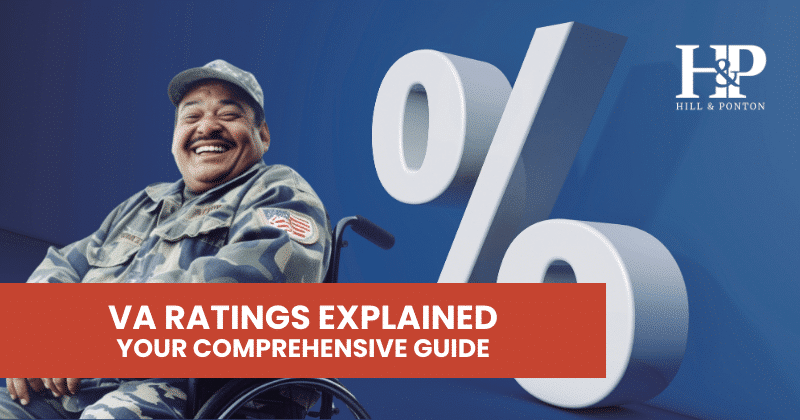Navigating the Department of Veterans Affairs (VA) as a veteran can be a complex journey.
Among the many important aspects to understand, VA Ratings play a crucial role in determining the benefits you are eligible to receive.
This comprehensive guide aims to demystify VA Ratings, providing you with the knowledge and resources necessary to navigate this process with confidence.
What is a VA Rating?
A VA Rating is a measure used by the Department of Veterans Affairs to assess the level of disability or impairment resulting from service-connected conditions.
It assigns a percentage that represents the extent to which your disability affects your daily life.
This percentage directly influences the compensation and benefits a disabled veteran may receive.
When determining your VA Rating, the VA considers various factors including:
- the severity of your condition
- its impact on your ability to work and perform daily activities
- the supporting evidence
The assigned rating signifies the degree of disability, with higher percentages indicating more severe impairments and potentially greater compensation.
Understanding your VA Rating is essential because it directly affects your access to a range of benefits, such as:
- monthly VA disability compensation
- healthcare services
- vocational rehabilitation, and more
It is not merely a number; it symbolizes the recognition of the sacrifices you made while serving your country.
By familiarizing yourself with the intricacies of VA Ratings, you gain the ability to advocate for your rights and ensure you receive the support you deserve.
Understanding the VA Rating Schedule
The VA Rating Schedule serves as a comprehensive guide for evaluating disabilities and assigning corresponding ratings.
It outlines specific criteria to determine the level of impairment.
Let’s explore some of the ones the VA uses to determine VA Ratings.
Physical Disabilities
Physical disabilities encompass a wide range of conditions resulting from injuries or illnesses related to military service.
Examples include things like:
- limb loss
- musculoskeletal disorders
- chronic pain
The severity of these disabilities is assessed by the VA, considering their impact on daily activities and overall functioning.
Mental Health Conditions
Mental health conditions, such as post-traumatic stress disorder (PTSD), depression, and anxiety, are prevalent among veterans.
The VA evaluates the severity of these conditions, taking into account factors like symptoms, treatment history, and functional impairment.
Ratings reflect the impact on daily life and the ability to work.
Service-Connected Injuries
Service-connected injuries are disabilities directly resulting from your military service.
These can include conditions like hearing loss, traumatic brain injury (TBI), or respiratory disorders due to exposure to hazardous substances.
The VA assesses the severity and functional limitations caused by a service connected disability to assign appropriate ratings.
Chronic Illnesses
Chronic illnesses are things like:
They can significantly impact veterans’ lives.
The VA considers the severity of these illnesses and their effects on daily functioning and quality of life.
Ratings reflect the degree of impairment caused by these conditions.
Secondary Service Connection
Secondary service connection refers to disabilities that are caused or worsened by existing service-connected conditions.
For example, if a service-connected back injury leads to hip problems, the hip condition may be eligible for secondary service connection.
The VA assesses the impact of secondary conditions and assigns ratings accordingly.
Possible VA Rating Percentages
Understanding the possible VA rating percentages is crucial for veterans to determine the level of VA disability compensation and benefits they may be eligible for based on their disabilities.
Let’s explore the various rating percentages and their implications.
0% Rating
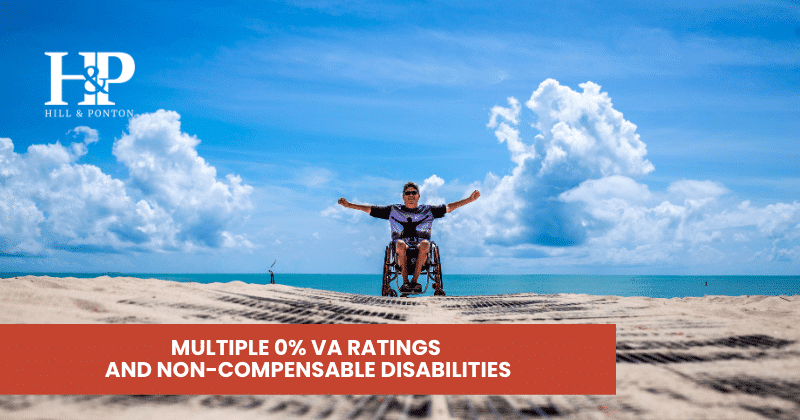
A 0% rating indicates a service-connected condition without any compensable impairment at the moment.
While it doesn’t provide monetary VA disability compensation, it establishes a connection to your military service, allowing for future reconsideration if your condition worsens.
10% Rating

A 10% rating suggests a mild level of impairment with minimal impact on daily life and work capacity.
While the compensation amount may be modest, it acknowledges the existence of a service-connected disability and grants access to additional benefits and healthcare services.
20% Rating
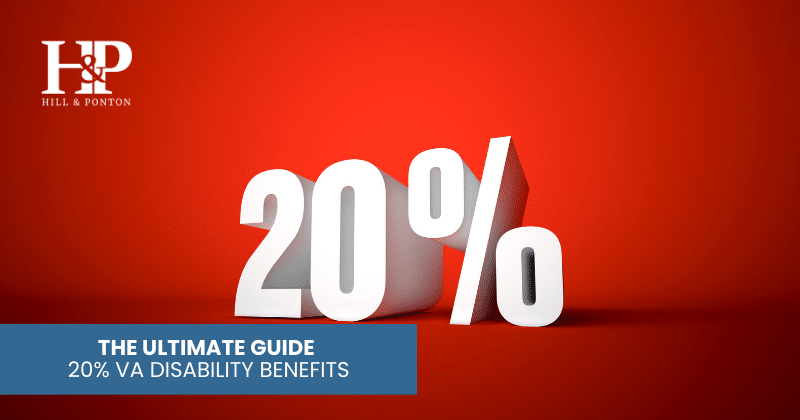
A 20% rating reflects a slightly higher level of impairment that moderately affects daily functioning and work capacity.
With this rating, you become eligible for increased compensation and gain access to a broader range of VA benefits, including specialized treatment options.
30% Rating
A 30% rating indicates a moderate level of impairment significantly impacting work ability and daily activities.
This rating provides increased compensation and a wider array of benefits, including vocational rehabilitation services to support employment opportunities.
50% Rating
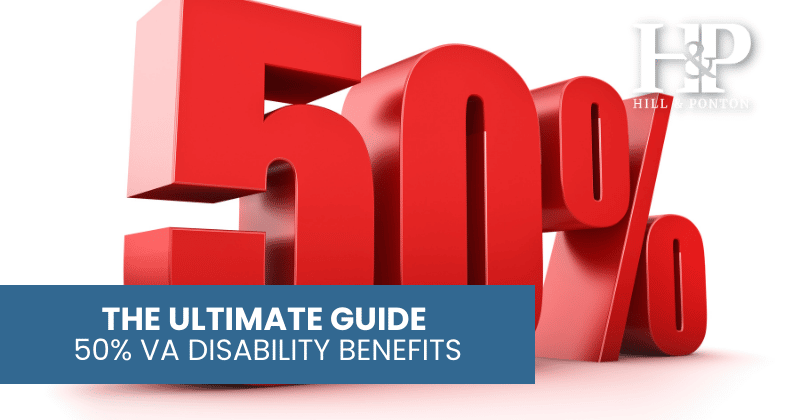
A 50% rating suggests a substantial level of impairment, making it challenging to maintain regular employment.
With this rating, you receive significant compensation and comprehensive healthcare benefits, along with additional assistance for dependents.
70% Rating

A 70% rating signifies a severe level of impairment significantly limiting work ability and independent daily functioning.
When you are assigned this rating, you are entitled to substantial compensation, comprehensive healthcare benefits, and additional support, such as assistance with personal care.
100% Rating
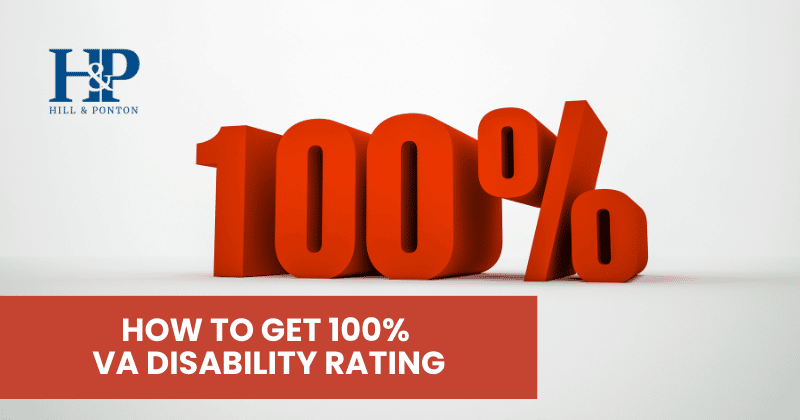
A 100% rating indicates total disability, rendering you unable to maintain substantial gainful employment.
This rating provides maximum compensation and an extensive range of benefits, including healthcare, vocational rehabilitation, and more.
Understanding VA Ratings is crucial for veterans to navigate the Department of Veterans Affairs (VA) and access the benefits they deserve.
A VA Rating represents the level of disability or impairment resulting from service-connected conditions and directly influences the compensation and benefits veterans may receive.
Throughout this guide, we have explored the intricacies of VA Ratings, including the VA Rating Schedule, different disability categories, and the implications of various rating percentages.
Armed with this knowledge, you can confidently advocate for your rights and maximize your benefits.
To dive deeper into specific topics related to VA Ratings, explore the additional resources and blog posts linked throughout this guide.
Remember, knowledge is power, and with a comprehensive understanding of VA Ratings, you can navigate the VA system effectively.
If you are interested in learning more about filing for disability benefits, or understanding the appeals process, be sure to check out our FREE ebook The Road to VA Compensation Benefits for a comprehensive guide.

